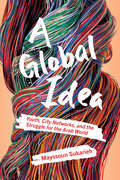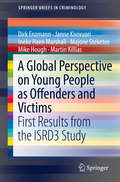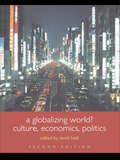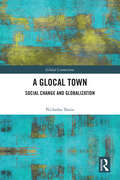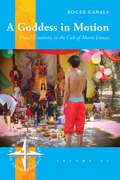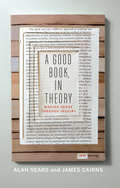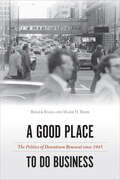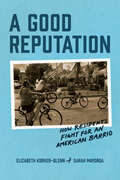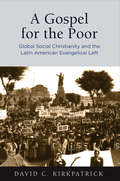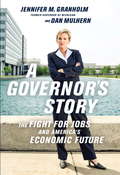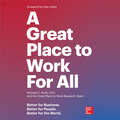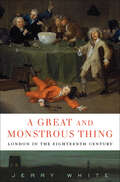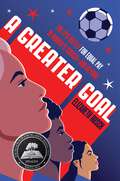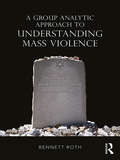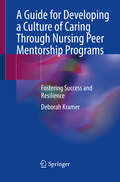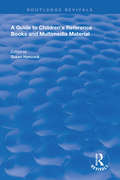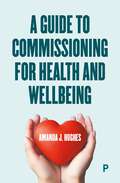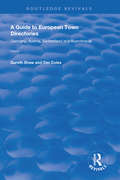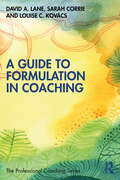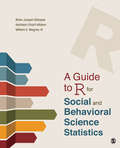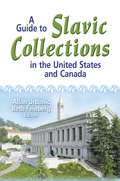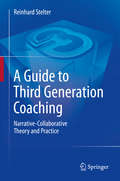- Table View
- List View
A Global Idea: Youth, City Networks, and the Struggle for the Arab World
by Mayssoun SukariehA Global Idea outlines how youth—as shown by the Arab Spring uprisings and subsequent state responses—became a prominent social and political category during the first two decades of the twenty-first century in the Middle East. Drawing on ethnographic fieldwork, interview data, and textual analysis, Mayssoun Sukarieh explains that the spread of youth as an important category is linked to the operation of a "global youth development complex," a diverse transnational network of state, private sector, civil society, and international development aid organizations that worked through key urban areas such as Washington, DC, Amman, and Dubai. In its analysis of the arrival, extension, and embedding of the youth development complex in the Middle East during this period, A Global Idea addresses a broader question that is of global and not just regional concern. How are certain ideas that are central to the working and reproduction of global capitalism able to travel the world so that they are found virtually everywhere?
A Global Perspective on Young People as Offenders and Victims: First Results from the ISRD3 Study (SpringerBriefs in Criminology)
by Martin Killias Ineke Haen Marshall Majone Steketee Dirk Enzmann Janne Kivivuori Mike HoughThis Brief presents the first major release of findings from the Third International Self-Report Delinquency Study (ISRD3). ISRD is a major international research collaboration that now covers some 35 countries. It surveys young people aged 12 to 16 in their schools, asking about their experience of crime - both as offenders and as victims - and about their attitudes to crime and justice and about their home and school life. ISRD1 was carried out in 1991-1992 and ISRD2 in 2006-2008. ISRD findings presented here cover the 27 ISRD3 countries for which data are already available, with a total sample approaching 63,000 young people. For most of these countries, the samples are drawn from two major cities. This volume provides key findings on self-reported offending and on victimization. Chapter 1 set the scene, and describes the background to ISRD3. Chapter 2 describes the methods used in the survey; respondents complete the ISRD questionnaire either in paper format or - increasingly - using a standardized internet program. Chapter 3 covers key findings on self-reported offending, including the important finding that preparedness to disclose offending varies according to cultural context. Chapter 4 presents findings on victimization, including important new findings on hate crime and the use of parental violence, as well as coverage of more conventional forms of crime. A final chapter summarizes the results and draws out their implications. This Brief will be of interest to researchers in criminology and criminal justice, as well as related fields such as sociology, public policy, and psychology. Due to the groundbreaking methodological analyses provided, this Brief is essential reading to all who conduct or use internationally comparative and global survey research.
A Globalizing World?: Culture, Economics, Politics (Understanding Social Change)
by David HeldToday's news media is full of references to 'globalization' - a buzz word that is quickly becoming ubiquitous. But what exactly is globalization? What are its main driving forces? Does it truly embrace all aspects of our lives, from economics to cultural developments? A Globalizing World? examines these and other key questions in a highly accessible fashion, offering a clear and intelligent guide to the big ideas and debates of our time. In doing so, it does not take one particular stance for or against globalizaton; rather, it examines the arguments and evidence about its nature, form and impact. After introducing the main theoretical positions of those who have studied the subject, key chapters look at the changing form of modern communication and cultural industries, trade patterns and financial flows of the world economy, and whether or not the 'new political world order' is qualitatively different from the old state system. This is essential reading for all students of politics, economics and international relations.
A Glocal Town: Social Change and Globalization (Global Connections)
by Nicholas TatsisThis book presents a novel theoretical and methodological approach to understanding the emerging “glocal” realities of (sub)urban space. Beginning with a study of a suburb of Athens, it illustrates the dynamic interaction between the local and the global, charting a range of radical social changes as this locality adapts itself to processes of globalization. Moving beyond the Athenian context, it shows how the various traditions of suburban enclaves interact with and confront the impact of external yet pervasive elements of the global(ized) world – for instance, through the adoption of events and practices observed in societies across the globe, such as Earth Day or International Holocaust Remembrance Day, or the use of the global calendar – as the polis transforms into a cosmopolis. With explorations of this kind, A Glocal Town advances a three- stage interpretative scheme that enables us to frame “glocality” more broadly, and better understand the global– local interaction wherever it occurs. As such, it will appeal to scholars of sociology, geography, and urban studies interested in globalization and its interaction with the local in (sub) urban locales.
A Goddess in Motion: Visual Creativity in the Cult of MarÃa Lionza (New Directions in Anthropology #42)
by Roger CanalsThe current practice of the cult of María Lionza is one of the most important and yet unexplored religious practices in Venezuela. Based on long-term fieldwork, this book explores the role of images and visual culture within the cult. By adopting a relational approach, A Goddess in Motion shows how the innumerable images of this goddess-represented as an Indian, white or mestizo woman-move constantly from objects to bodies, from bodies to dreams, and from the religion domain to the art world. In short, this book is a fascinating study that sheds light on the role of visual creativity in contemporary religious manifestations.
A Good Book, In Theory: Making Sense Through Inquiry, Third Edition
by Alan Sears James CairnsThis highly original and compelling book offers an introduction to the art and science of social inquiry, including the theoretical and methodological frameworks that support that inquiry. The new edition offers coverage of post-modernism and Indigenous ways of knowing, as well as a discussion of the research process and how to communicate arguments effectively. The result is a book that blends the best of earlier editions with updates that provide a strong foundation in critical thinking, rooted in the social sciences but relevant across disciplines.
A Good Place to Do Business: The Politics of Downtown Renewal since 1945 (Urban Life, Landscape and Policy)
by Roger Biles Mark H. RoseThe “Pittsburgh Renaissance,” an urban renewal effort launched in the late 1940s, transformed the smoky rust belt city’s downtown. Working-class residents and people of color saw their neighborhoods cleared and replaced with upscale, white residents and with large corporations housed in massive skyscrapers. Pittsburgh’s Renaissance’s apparent success quickly became a model for several struggling industrial cities, including St. Louis, Cleveland, Detroit, Chicago, and Philadelphia. In A Good Place to Do Business, Roger Biles and Mark Rose chronicle these urban “makeovers” which promised increased tourism and fashionable shopping as well as the development of sports stadiums, convention centers, downtown parks, and more. They examine the politics of these government-funded redevelopment programs and show how city politics (and policymakers) often dictated the level of success. As city officials and business elites determined to reorganize their downtowns, a deeply racialized politics sacrificed neighborhoods and the livelihoods of those pushed out. Yet, as A Good Place to Do Business demonstrates, more often than not, costly efforts to bring about the hoped-for improvements failed to revitalize those cities, or even their downtowns.
A Good Reputation: How Residents Fight for an American Barrio
by Elizabeth Korver-Glenn Sarah MayorgaA historic Houston barrio provides an illuminating lens on neighborhood reputation. Neighborhoods have the power to form significant parts of our worlds and identities. A neighborhood’s reputation, however, doesn’t always match up to how residents see themselves or wish to be seen. The distance between residents’ desires and their environment can profoundly shape neighborhood life. In A Good Reputation, sociologists Elizabeth Korver-Glenn and Sarah Mayorga delve into the development and transformation of the reputation of Northside, a predominantly Latinx barrio in Houston. Drawing on two years of ethnographic research and in-depth interviews with residents, developers, and other neighborhood stakeholders, the authors show that people’s perceptions of their neighborhoods are essential to understanding urban inequality and poverty. Korver-Glenn and Mayorga’s empirically detailed account of disputes over neighborhood reputation helps readers understand the complexity of high-poverty urban neighborhoods, demonstrating that gentrification is a more complicated and irregular process than existing accounts of urban inequality would suggest. Offering insightful theoretical analysis and compelling narrative threads from understudied communities, A Good Reputation will yield insights for scholars of race and ethnicity, urban planning, and beyond.
A Gospel for the Poor: Global Social Christianity and the Latin American Evangelical Left
by David C. KirkpatrickIn 1974, the International Congress on World Evangelization met in Lausanne, Switzerland. Gathering together nearly 2,500 Protestant evangelical leaders from more than 150 countries and 135 denominations, it rivaled Vatican II in terms of its influence. But as David C. Kirkpatrick argues in A Gospel for the Poor, the Lausanne Congress was most influential because, for the first time, theologians from the Global South gained a place at the table of the world's evangelical leadership—bringing their nascent brand of social Christianity with them.Leading up to this momentous occasion, after World War II, there emerged in various parts of the world an embryonic yet discernible progressive coalition of thinkers who were embedded in global evangelical organizations and educational institutions such as the InterVarsity Christian Fellowship, the International Fellowship of Evangelical Students, and the International Fellowship of Evangelical Mission Theologians. Within these groups, Latin Americans had an especially strong voice, for they had honed their theology as a religious minority, having defined it against two perceived ideological excesses: Marxist-inflected Catholic liberation theology and the conservative political loyalties of the U.S. Religious Right.In this context, transnational conversations provoked the rise of progressive evangelical politics, the explosion of Christian mission and relief organizations, and the infusion of social justice into the very mission of evangelicals around the world and across a broad spectrum of denominations. Drawing upon bilingual interviews and archives and personal papers from three continents, Kirkpatrick adopts a transnational perspective to tell the story of how a Cold War generation of progressive Latin Americans, including seminal figures such as Ecuadorian René Padilla and Peruvian Samuel Escobar, developed, named, and exported their version of social Christianity to an evolving coalition of global evangelicals.
A Governor's Story: The Fight for Jobs and America's Economic Future
by Jennifer Granholm Dan MulhernJennifer Granholm was the two-term governor of Michigan, a state synonymous with manufacturing during a financial crisis that threatened to put all AmericaOCOs major car companies into bankruptcy. The immediate and knock-on effects were catastrophic. GranholmOCOs grand plans for education reform, economic revitalization, clean energy, and infrastructure development were blitzed by a perfect economic storm. Granholm was a determined and undefeated governor, who enjoyed close access to the White House at critical moments (Granholm stood in for Sarah Palin during Joe BidenOCOs debate preparation), and her account offers a front row seat on the effects of the crisis. Ultimately, her story is a model of hope. She hauls Michigan towards unprecedented private-public partnerships, forged in the chaos of financial freefall, built on new technologies that promise to revolutionize not only the century-old auto industry but MichiganOCOs entire manufacturing base. They offer the potential for a remarkable recovery not just for her state, but for American industry nationwide.
A Great Place to Work For All: Better for Business, Better for People, Better for the World
by Michael C. Bush Great Place to WorkGreatness Redefined for the 21st CenturyToday's business climate is defined by speed, social technologies, and people's expectations of "values" besides value. As a result, leaders have to create an outstanding culture for all, no matter who they are or what they do for the organization. This groundbreaking book, from the creators of the gold-standard Fortune 100 Best Companies to Work For list, shows how it's done. Through inspiring stories and compelling research, the authors demonstrate that great places to work for all benefit the individuals working there and contribute to a better global society—even as they outperform in the stock market and grow revenue three times faster than less-inclusive rivals. This is a call to lead so that organizations develop every ounce of human potential.
A Great and Monstrous Thing: London in the Eighteenth Century
by Jerry WhiteThis &“magisterial history of London&” explores the rapidly changing culture and commerce of the eighteenth century in &“a book that hums with vitality&” (Times Literary Supplement, UK). London in the eighteenth century was a new city, risen from the ashes of the Great Fire of 1666. The century that followed was an era of vigorous expansion and rapid change as waves of people were drawn to its wealth, power, and many diversions. Borrowing a phrase from Daniel Defoe, Jerry White calls London &“this great and monstrous thing,&” the grandeur of its new buildings and the glitter of its high life shadowed by poverty and squalor.A Great and Monstrous Thing offers a street-level view of eighteenth century London&’s public gardens and prisons, its banks, and brothels, its workshops and warehouses. White introduces us to shopkeepers and prostitutes, men and women of fashion and genius, street-robbers and thief-takers, as they play out the astonishing drama of city life. What emerges is a picture of a society fractured by geography, politics, religion, history—and especially by class. Despite the deep and destructive gulf between rich and poor, Jerry White shows us Londoners going about their business as bankers or beggars, reveling in an enlarging world of public pleasures, indulging in crimes both great and small—amidst the tightening sinews of power and regulation, and the hesitant beginnings of London democracy.
A Greater Goal: The Epic Battle for Equal Pay in Women's Soccer-and Beyond
by Elizabeth RuschYALSA Excellence in Nonfiction Award FinalistA CCBC ChoiceMore than 250 women have played on the U.S. Women’s National Soccer Team, and most contributed to the battle for equal pay. This narrative nonfiction book by the award-winning author and journalist Elizabeth Rusch traces the evolution of that fight, bringing this important rights issue in sports and in our culture to the attention of young readers. Features extensive back matter.With the passage of Title IX in 1972, the doors opened for young women to play sports at a higher level. But for the women on the U.S. Women's National Soccer Team, being able to compete at an international level didn’t mean fair treatment and fair compensation.From economy-class airplane seats and inadequate lodging to minimal marketing and slashed wages, the women representing the United States at the Olympics, the World Cup, and other tournaments had reason to be fed up. They were expected to—and did—win, but they weren’t compensated for their talent and dedication. With the help of their union and in collaboration with the men’s team, they secured an equitable contract in 2022 that ultimately benefited both national teams as well as athletes of the future.Elizabeth Rusch’s A Greater Goal chronicles how members of the U.S. Women’s National Soccer Team fought to receive fair treatment and equal pay despite the intense pushback they received from U.S. Soccer, the governing body of soccer in the United States. With a narrative that includes player profiles and vignettes framed from team member perspectives, A Greater Goal illuminates the work, support, and grit needed to be treated with equality in a world that often undervalues the contributions of women.Features extensive back matter, including a call to action, additional resources, and an index.
A Group Analytic Approach to Understanding Mass Violence: The Holocaust, Group Hallucinosis and False Beliefs
by Bennett RothA Group Analytic Approach to Understanding Mass Violence makes an analytic examination of the enactment of genocide by Nazi Germany during World War II to explore how mass and state-sponsored violence can arise within societies and how the false beliefs that are used to justify such actions are propagated within society. Bennett Roth makes use of Bion’s concept of ‘Hallucinosis’ to describe the formation of false group beliefs that lead to murderous violence. Drawing on both group analysis and psychoanalysis, Roth explores in relation to genocide: how people form and identify with groups the role of family groups how conflict can arise and be managed how violence can arise and be justified by false beliefs how we can best understand these dysfunctional group dynamics to avoid such violence. A Group Analytic Approach to Understanding Mass Violence will be of great interest to all psychoanalysts and group analysts seeking to understand the role of false beliefs in their patients and society more generally. It will also be of interest to students and scholars of Holocaust studies programs or anyone seeking to understand the perpetration of genocide in the past and present.
A Guidance Approach for the Encouraging Classroom
by Dan GartrellA GUIDANCE APPROACH FOR THE ENCOURAGING CLASSROOM, 5/E, is for students in two- and four-year early childhood programs as well as graduate courses. It easily can function as a primary text in classes that address group management, the learning environment, child guidance, child behavior, challenging behavior, conflict management, and peace education topics. The text addresses ages 3 - 8 years in three parts. Part 1 explores the foundation of guidance in early childhood education and covers key concepts such as conventional discipline versus guidance, mistaken behavior, the guidance tradition, and innovative theories about child development with guidance. Part 2 focuses on building and organizing an encouraging classroom, as well as providing key elements of an encouraging classroom, including daily schedule, routines, use of thematic instruction, importance of working with parents, and leadership communication. Part 3 addresses problem solving and challenging behavior in the encouraging classroom, including a practical illustration for how to use and teach conflict management and coverage of the five-finger-formula. The book also covers nontraditional families as well as the effects of societal violence in the classroom. Throughout, this experience-based resource includes real-life anecdotes that allow professionals to make the shift from conventional classroom to developmentally appropriate guidance.
A Guide To U.S. Aircraft Noise Regulatory Policy (Springerbriefs In Applied Sciences And Technology Ser.)
by Sanford Fidell Vincent MestreAviation noise remains the primary hindrance to expansion of airport and airspace capacity in the United States. This book describes the development and practice of U.S. aircraft noise regulation, as well as the practical consequences of regulatory policy. Starting in the pre-jet transport era, the book traces the development of the modern framework for characterizing, standardizing, predicting, disclosing, and mitigating aircraft noise and its effects on airport-vicinity communities. Among other matters, the book treats noise-related consequences of the 1978 deregulation of the airline industry; prediction and mitigation of community reaction to airport noise; land use compatibility planning; recent research and industry trends; and some suggestions for potential improvements to current policy. Initial chapters describe the assumptions underlying aircraft noise regulation, and lay out the chronology of U.S. aircraft noise regulatory practice. Later chapters provide overviews of population-level effects of aviation noise, including health effects, speech and sleep interference, and annoyance. Readers will learn why predictions of the prevalence of aircraft noise-induced annoyance have systematically underestimated adverse community response to aircraft noise, and how such underestimation has complicated approval and funding of airport and airspace improvement projects. They will also learn why attempts at noise-compatible land use planning are seldom fully successful.
A Guide for Developing a Culture of Caring Through Nursing Peer Mentorship Programs: Fostering Success and Resilience
by Deborah KramerThis book describes in detail how to develop successful programs of nursing mentorship, utilizing concepts of caring that yields a strong, caring body of nurses who will be “nurse thrivers” as they find fulfilment and meaning in their professional commitment and will train others to do the same. The mentorship program is the ticket to success that many students need to complete their degree program, prevent burnout, pass the nursing NCLEX examination, and remain in the workforce after graduation. The current attrition rate in baccalaureate nursing programs is 25-50%, as is the attrition rate in the first 2 years of employment of new RN's entering the workforce. Burnout is due to a lack of care and support for helping the students navigate the rigor and demands of the nursing program. Creating a community of learners with caring and support creates an environment that fosters academic engagement and success. The unique aspect of this book is its focus on creating a caring environment to support the students; helping them develop caring skills, empathy, resilience and their own self-care; developing the skills for success beyond their educational process into the workforce. This book integrates all patterns of knowing - personal, aesthetic, empiric and ethical - and provides the missing link of peer mentorship necessary to the development of resilient, emancipated nursing students and graduates capable of working in community with others to establish cultures of care in health care. This is a must have resource for transformation of nursing education in the next century! Foreword by Dr. Margaret McClure.
A Guide to Children's Reference Books and Multimedia Material (Routledge Revivals)
by Susan HancockFirst published in 1998 , A Guide to Children’s Reference Books and Multi Material provides essential information on over 250 children’s reference products for parents, teachers and librarians wishing to purchase the best books and multimedia material in the late 90’s.
A Guide to Commissioning Health and Wellbeing Services
by Amanda J. HughesAre you a health and social care commissioner navigating the ever-changing commissioning landscape? With challenges such as limited funding, changing demands and global pandemics, we need to be clear on why, what and how we commission effectively. This book offers you a warm welcome into the often-complex world of healthcare commissioning. Amanda J. Hughes shares personal insights from her commissioning career and practical guidance that will demystify the commissioning cycle and ease the journey as you strive to achieve the best outcomes for the population. This book will help you to ensure valuable resources are directed to those with most need, that care is fair and accessible and that the solutions you put into place are sustainable for the longer term.
A Guide to European Town Directories: Volume One - Germany, Austria, Switzerland and Scandinavia. (Routledge Revivals)
by Gareth Shaw Tim ColesFirst published in 1997, European Directories is a major resource guide for urban historians and historical geographers. It provides a detailed bibliography of all directories published and available in major libraries throughout Germany, Austria, Switzerland, Denmark and Scandinavia. In addition, the book provides an account of the evolution of town directories, as well as giving an analysis of directory reliability and coverage. Researchers will also find an extensive bibliography for each country of literature that has utilized directory information in historical studies. The second volume includes France and southern Europe. The whole provides the first European-wide resource for those undertaking urban historical studies.
A Guide to Formulation in Coaching (The Professional Coaching Series)
by Sarah Corrie David A. Lane Louise C. KovácsLane, Corrie and Kovács present a foundational text for coaches wishing to improve their coaching practice through use of formulation.A Guide to Formulation in Coaching examines the nature and purpose of formulation and how to develop effective formulations that can inform and improve practice. It combines theoretical perspectives with case studies illustrating its use in different coaching contexts to provide a comprehensive and accessible account of the purpose, perspectives and processes used in formulation. In addition to providing practice-based examples and drawing on the literature, the book provides a series of exercises to enable readers to refine their individual approaches.Practical and accessibly written, this book will be a valuable resource for coaches and coaching psychologists, coaching supervisors and trainers, and academics interested in understanding the role of formulation and how it applies in a coaching context.
A Guide to R for Social and Behavioral Science Statistics
by Brian Joseph Gillespie Dr. William E. Wagner Kathleen Charli HibbertA Guide to R for Social and Behavioral Science Statistics is a short, accessible book for learning R, geared toward social and behavioral science students. Instructors Brian Gillespie, Kathleen Hibbert, and William E. Wagner, III, have combined a review of introductory statistics with an introduction to R to teach readers two of the most valuable skills for research and in the workplace. Designed for readers with no knowledge of statistics or R, A Guide to R for Social and Behavioral Science Statistics follows the most common progression of statistics, starting with basic descriptive statistics, and continuing up through inferential statistics and regression. This text provides step-by-step instructions for working with R, starting with downloading and installing R and RStudio®, featuring code and output so readers can follow along with each step. Readers can apply their knowledge with examples and exercises featuring data from the General Social Survey in each chapter. Tips on R show users how to avoid common pitfalls in R and most efficiently use the RStudio interface. With frequent reminders of statistical concepts to accompany instructions and tips in R, this text helps readers master R for statistics in the social and behavioral sciences.
A Guide to R for Social and Behavioral Science Statistics
by Brian Joseph Gillespie Dr. William E. Wagner Kathleen Charli HibbertA Guide to R for Social and Behavioral Science Statistics is a short, accessible book for learning R, geared toward social and behavioral science students. Instructors Brian Gillespie, Kathleen Hibbert, and William E. Wagner, III, have combined a review of introductory statistics with an introduction to R to teach readers two of the most valuable skills for research and in the workplace. Designed for readers with no knowledge of statistics or R, A Guide to R for Social and Behavioral Science Statistics follows the most common progression of statistics, starting with basic descriptive statistics, and continuing up through inferential statistics and regression. This text provides step-by-step instructions for working with R, starting with downloading and installing R and RStudio®, featuring code and output so readers can follow along with each step. Readers can apply their knowledge with examples and exercises featuring data from the General Social Survey in each chapter. Tips on R show users how to avoid common pitfalls in R and most efficiently use the RStudio interface. With frequent reminders of statistical concepts to accompany instructions and tips in R, this text helps readers master R for statistics in the social and behavioral sciences.
A Guide to Slavic Collections in the United States and Canada
by Allan Urbanic Beth FeinbergGet access to the Slavic and East European research materials you needA Guide to Slavic Collections in the United States and Canada presents up-to-date information on 85 North American libraries that house Slavic and East European research materials, providing current details on recent acquisitions, developments in collection policies, and changes in contact information. Using individual entries written by each institution&’s librarian or archivist, you&’ll save valuable time and effort in your search for resources on Russia and the rest of the former Soviet Union, Poland, the Czech and Slovak Republics, the former Yugoslavia, the Baltic countries, Bulgaria, Albania, Hungary, Romania, and the Sorbs in Germany. This unique book includes facts and figures on special collections, finding aids, catalogs, Web access, and bibliographies for further readings.A Guide to Slavic Collections in the United States and Canada examines collections available at public libraries, governmental libraries, special collections, and university libraries. Edited by Dr. Allan Urbanic, Librarian for Slavic and East European Collections at the University of California, Berkeley, and Slavic Collection Manager at the University of California, Santa Barbara, and Beth Feinberg, Slavic Catalog Librarian at the University of California, Los Angeles, the book lists current and retrospective materials collected in print, microform, and electronic formats, and includes monographs, serial publications, reference works, dissertations, and conference proceedings. Entries for A Guide to Slavic Collections in the United States and Canada include: access policy for visits general collection description special collection description online catalog archive collections size of collection percent of collection in vernacular language electronic resources and much more!A Guide to Slavic Collections in the United States and Canada is an essential, time-saving resource for librarians and academics looking for research materials.
A Guide to Third Generation Coaching: Narrative-Collaborative Theory and Practice
by Reinhard StelterThis book proposes third generation coaching in a form where the coach and the coaches are less concerned with solutions and more concerned with creating space for (self-)reflection through collaborative practices. Offering a revisited and innovative approach to coaching psychology, advantageous for learners and practitioners alike. It marks a new trend in coaching and has a special profile, based on the acknowledgement of changes in society, learning and knowledge production, as well as leadership. The author' s concept of coaching distinguishes itself from the existing models (pop coaching , GROW model, etc) by offering a fresh analysis of our society - a society that is characterised by diversification, identity challenges, abolition of the monopoly of knowledge, lifelong learning, the necessity for self-reflection, etc. These societal changes are the basis for the existence of coaching and its prevalence, but they must also be the foundation for the way we employ coaching.
